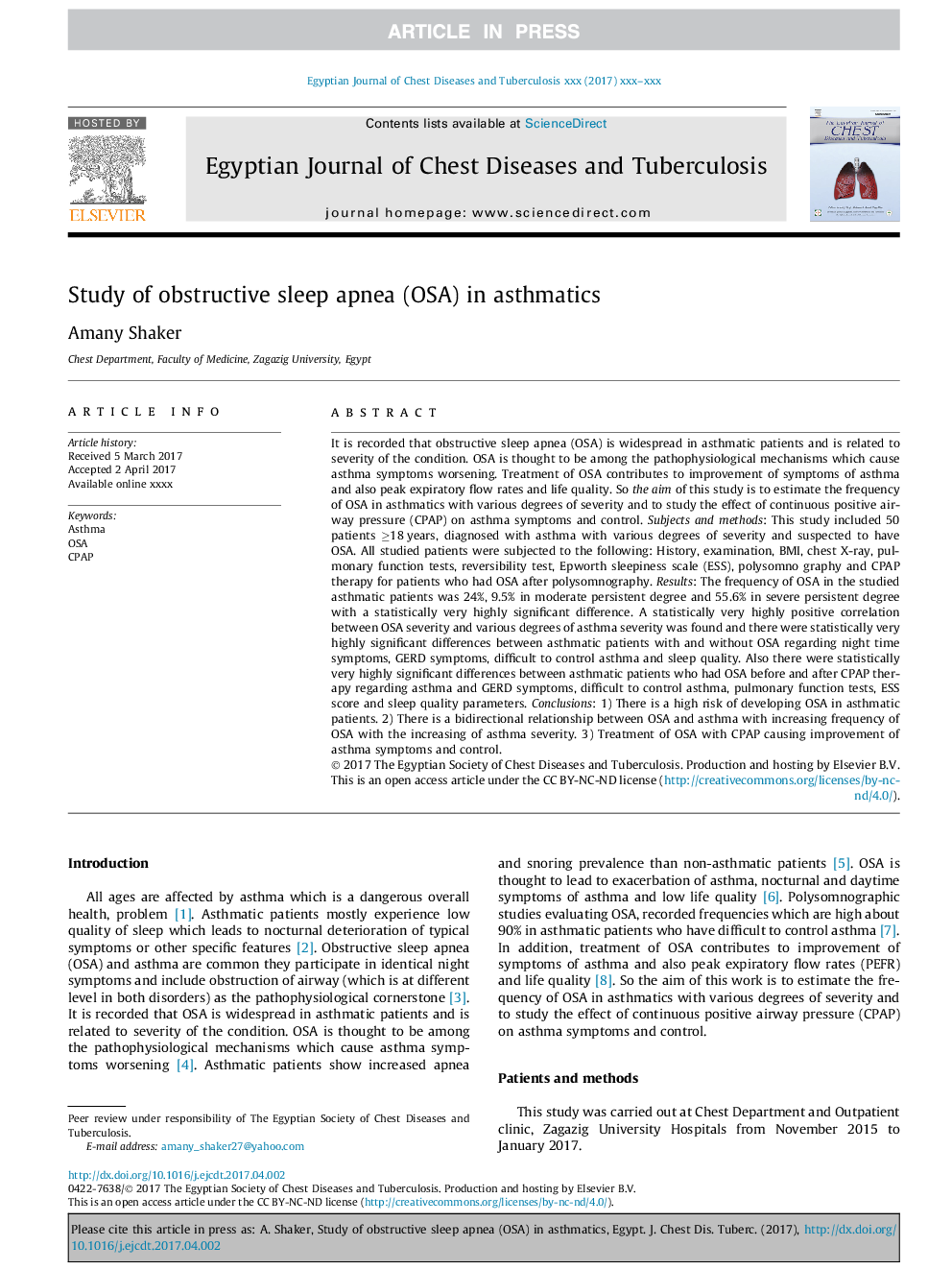| Article ID | Journal | Published Year | Pages | File Type |
|---|---|---|---|---|
| 8745291 | Egyptian Journal of Chest Diseases and Tuberculosis | 2017 | 6 Pages |
Abstract
It is recorded that obstructive sleep apnea (OSA) is widespread in asthmatic patients and is related to severity of the condition. OSA is thought to be among the pathophysiological mechanisms which cause asthma symptoms worsening. Treatment of OSA contributes to improvement of symptoms of asthma and also peak expiratory flow rates and life quality. So the aim of this study is to estimate the frequency of OSA in asthmatics with various degrees of severity and to study the effect of continuous positive airway pressure (CPAP) on asthma symptoms and control. Subjects and methods: This study included 50 patients â¥18 years, diagnosed with asthma with various degrees of severity and suspected to have OSA. All studied patients were subjected to the following: History, examination, BMI, chest X-ray, pulmonary function tests, reversibility test, Epworth sleepiness scale (ESS), polysomno graphy and CPAP therapy for patients who had OSA after polysomnography. Results: The frequency of OSA in the studied asthmatic patients was 24%, 9.5% in moderate persistent degree and 55.6% in severe persistent degree with a statistically very highly significant difference. A statistically very highly positive correlation between OSA severity and various degrees of asthma severity was found and there were statistically very highly significant differences between asthmatic patients with and without OSA regarding night time symptoms, GERD symptoms, difficult to control asthma and sleep quality. Also there were statistically very highly significant differences between asthmatic patients who had OSA before and after CPAP therapy regarding asthma and GERD symptoms, difficult to control asthma, pulmonary function tests, ESS score and sleep quality parameters. Conclusions: 1) There is a high risk of developing OSA in asthmatic patients. 2) There is a bidirectional relationship between OSA and asthma with increasing frequency of OSA with the increasing of asthma severity. 3) Treatment of OSA with CPAP causing improvement of asthma symptoms and control.
Related Topics
Health Sciences
Medicine and Dentistry
Infectious Diseases
Authors
Amany Shaker,
